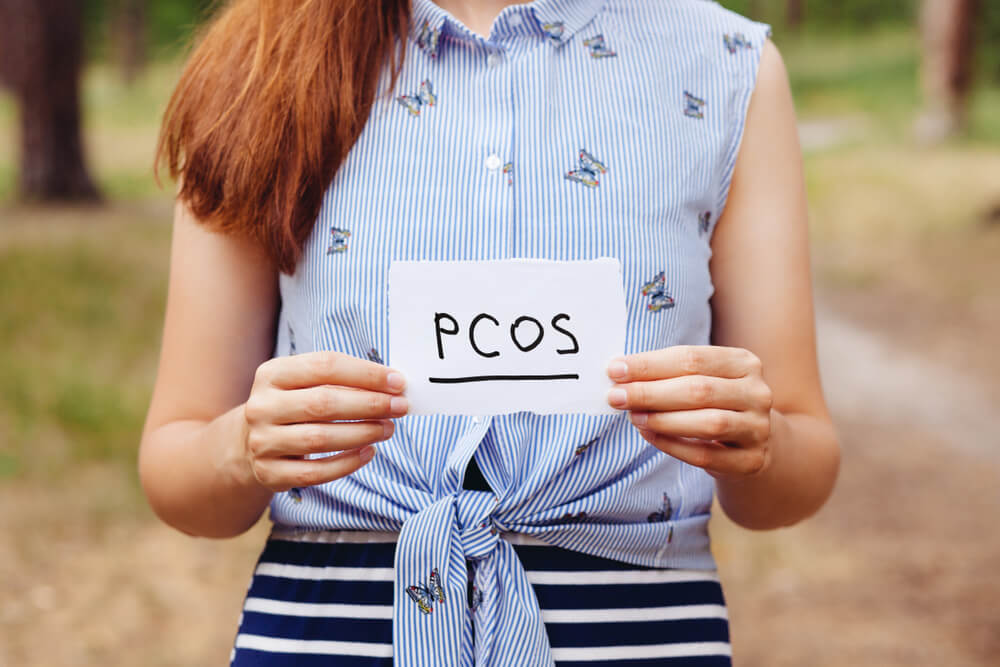Disclaimer: Please note that this blog is for educational purposes only, it includes general information on health-related topics. Women’s Healthcare of Boca Raton is giving medical advice to Patients Only. Follow this link to request an appointment with Dr. Ellman.
Any fluctuations from your regular cycle can be scary, especially when it comes to starting your period 2 weeks early. However, there is no reason to panic, as this kind of thing happens to everyone at least once in their life.
Why Did My Period Come Early?
A menstrual cycle can last anywhere between 21 and 35 days. Even women with the most regular and consistent periods can get them two weeks earlier than expected. There are plenty of reasons for bleeding, but they don’t have to be indicators that there’s something wrong. We’ll help you get to the bottom of things by giving you the right questions to ask yourself.
Is It Ovulation or an Early Period?
Ovulation usually occurs in the middle of your cycle, and that can roughly be two weeks before you’re supposed to get your period. Therefore, what you think is your period coming early, could actually just be spotting.
Spotting is caused by normal hormone fluctuations in your cycle and can be recognized by the color and length of bleeding. The main difference between your period coming early and entering ovulation is that spotting is much lighter and doesn’t increase in volume.
It only lasts for about one or two days and is usually pink or red in color. Some light cramping can be expected, too.
Could I Be Too Stressed Out?

Stress can be one of the most common reasons for getting your period 2 weeks early. First of all, stress is an unavoidable part of life, and we all have to deal with it daily. Secondly, times of increased stress can impact both your mental and physical well-being. This includes your period.
If you’ve been through an especially rough period in the past few months, suffer from anxiety, or notice other stress-related symptoms, you don’t have to wonder why you got an early period. It happens because stress disrupts normal hormone levels, thus messing up your cycle. Focusing on relieving stress should make your cycle more consistent, too.
Why Did My Period Come Early if I’m on Birth Control?
It is because contraceptives influence hormonal changes that affect and change your cycle. Both emergency contraception and hormonal birth control can cause your period to come early. When it comes to emergency pills, like the Plan B pill, they work by disrupting ovulation, meaning they can cause an early period, as well as a late one.
Taking birth control pills will also affect the timing of your next period. How early or late your period arrives will depend on what part of your cycle you started taking birth control and whether you’re also taking a week of reminder pills.
Keep in mind that other birth control options, such as an IUD, can also cause hormone fluctuations and period fatigue. Furthermore, switching from one type of birth control to another, as well as abruptly going off birth control, can all cause issues with your cycle for a few months.
If you experience heavy bleeding or more pain than usual, you should always visit a good Women’s Health Clinic if the bleeding lasts longer than anticipated. This is because the birth control you’re taking may be causing more harm than good, and a doctor will be able to prescribe something that suits you better.
Could an Irregular Cycle Be Part of Puberty?
If you’re in puberty, you no longer have to ask yourself, “why did my period come early”?. This is a time full of change and uncertainties, and your reproductive system is just as affected as the rest of your body and mind. Changes in hormones are natural and marked by many things— mood swings, increased sweating, and getting your period included.
However, simply getting your first period doesn’t mean you should expect your hormones to balance out. In fact, it takes a few years for a consistent cycle to develop, so having a shorter cycle one month and a longer one the next month is to be expected.
Moreover, some studies claim that your period coming early or late for up to six years after it first started is completely normal.
While this is comforting news, it doesn’t always bring peace of mind if you experience significant pain or feel like something is definitely wrong. A typical Gynecology service that most clinics provide includes talking to a doctor and having (at least) the outer genital parts examined.
This can be a great way to appease anxiety, as well as a perfect opportunity for teenagers to get to know their bodies better.
Are There Frequent Fluctuations in My Weight?
If you have trouble maintaining a consistent weight, that could be why you get your period 2 weeks early. As well as that, weight fluctuations can cause other irregularities in your cycle, like making your period last longer or coming late.
Losing a lot of weight suddenly is most associated with these irregularities, though. When you don’t weigh enough, your body goes into starvation mode and stops performing all unnecessary functions. This is a self-preservation tactic, as your body has to save energy for things like breathing.
What About Endometriosis?
Endometriosis is characterized by severe cramps, period fatigue, chronic back pain, and pain during or after sex. It can also cause irregularities with your period but can go undetected for years.
This condition is caused by the tissue that grows inside the uterus (the lining that sheds during your period) and starts growing in different body areas. The ovaries, bowels, and abdomen can all be affected.
Since endometriosis can cause prolonged and very painful bleeding, don’t be afraid to go to the gynecologist on your period. An experienced doctor has seen it all by now, and your health and comfort should come before anything else.
Before you visit the gynecologist, though, check with your female relatives (your mother, female siblings, aunts, and grandmothers) whether they experience(d) similar symptoms to you.
You are at higher risk of having endometriosis if someone in your family has it, so knowing your family history before you talk to your doctor is essential.
Could I Have PCOS?

Experiencing period fatigue, very irregular or missed periods, unexplainable weight gain, acne, or having excessive body hair can all be signs of PCOS— Polycystic ovary syndrome. This condition is characterized by an overproduction of androgens (male sex hormones).
While it can cause lasting effects like infertility, the most noticeable symptoms are the ones that lower your quality of life and increase your anxiety. Those who recognize themselves in this description should take advantage of OBGYN services in Boca.
Talking to the doctor about your suspicions regarding PCOS is essential, as this condition isn’t often diagnosed during routine gynecological exams even though one in ten American women
suffer from it. Instead, people usually find out when they’re trying to get pregnant.
Conclusion
Have you experienced any of these symptoms before? There you have it— these are just some of the most common reasons your period might be early. We would love to give you some peace of mind and ensure you’re healthy, so feel free to book an appointment at (561) 228-4163.

Dr. Ellman is a Board Certified OBGYN who established his medical practice in South Florida over 25 years ago. His office, Women’s Healthcare of Boca Raton, is located in Boca Raton, Florida at West Boca Medical Center. Dr. Ellman attended Albert Einstein College of Medicine of Yeshiva University, where he received his medical degree. He went on to intern at Beth Israel Hospital in Boston- an affiliate of Harvard Medical School- and continued his residency at North Shore University Hospital in Manhasset, New York- an affiliate of Cornell Medical School.
Dr. Ellman has practiced Obstetrics and Gynecology in the Boca Raton area since 1995. In addition to treating patients at West Boca Hospital, Dr. Ellman also treats patients through his own private practice, Women’s Healthcare of Boca Raton, located on the West Boca Medical Campus.

